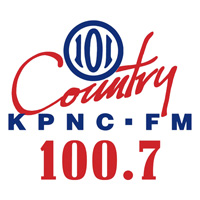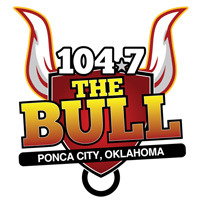1927 – Charles Carrell was a pioneering theatrical and radio entrepreneur. He owned a theatrical booking agency in Chicago and in New York. Once he heard his first radio broadcast, he was hooked. He applied for and was granted licenses for ten portable stations, and arranged their financing. WBBZ was not one of the original groups, but Carrell acquired it while it was located in Indianapolis. The call letters, WBBZ, were derived from a slogan used to identify Indianapolis—World’s Busiest Business Zone. All stations in the U.S. at that time began with the letter “W”.
For a time, WBBZ toured the country with the Redpath Chautauqua circuit, presenting programs of professional talent. Frequently, local talent was highlighted along with the professional groups.
Harry Kyler managed one of the original ten stations for Carrell, WIBW in Topeka, Kansas.
From Indianapolis, he took WBBZ to the Broadview Hotel in Wichita. Then, in 1927, Kyler brought the station to Ponca City for a week-long test run at the Poncan Theatre. Kyler, impressed by Ponca City, suggested to Carrell that a station be located here permanently.
1928 – The Federal Communications Commission ruled that traveling radio stations must choose a permanent location, so Carrell’s Management Company decided to locate in Ponca City permanently. The first broadcast was at 7:00 p.m. on January 30, 1928, and originated on the stage of the Poncan Theater.
The programming was local talent and records…sort of a vaudeville show. George Warren, a vocal soloist, did most of the heavy work. In fact, he was forced to pull off his necktie as the program continued and requests kept coming in. Of course, listeners didn’t realize he had removed his tie.
Vera Byerhoff played several organ numbers and then Harry Kyler, the station’s first manager, suggested that Bennie Butler might play the piano. The station signed off at exactly 13 minutes till 1:00 o’clock a.m.
From time to time, the station would stop the live broadcasts so listeners could hear national broadcasts.
1930 – WBBZ moved their studio to the Majestic Theater, 315 E. Grand. The transmitter and tower were relocated to 407 W. South Ave. at the American Legion Hut. Morton Harvey was the General Manager.
Starting in the 1930-31 school year, WBBZ broadcast the weekly football games at Northern Oklahoma Junior College – NOJC. 1931 – Station Manager Morton Harvey and his wife, Betty, had a live program, “Old Rolling Stone and Aunt Betty,” that consisted of spur-of-the-moment humor and old-fashioned “Sing-alongs.”
1933 – Station owner Charles Carrell died. His widow, Adelaide Carrell, became managing director and owner.
1934 – One of the most popular entertainment groups on WBBZ was Delia’s Range Ramblers. Early members were Delia Daniels, Jerry Daniels, Arkansas Wilbur (that is the only name anyone ever knew), and Leon Eberhard. One of the early day members was Al Duroy.
1937 – WBBZ joined the Mutual Broadcasting System, the largest national radio network. They aired a variety of news reports and entertainment while continuing with local and state news. Sports, both as news and as entertainment, had a big place in the programming and continued to expand.
1945 – Gene Marshall, the station’s 1st class engineer who was also a ham operator, returned from service in World War II.
1947 – The Ponca City Publishing Co. began negotiations with Adelaide Carrell to purchase the station.
1948 – On September 1, Mrs. Adelaide Carrell, owner and managing director of WBBZ, announced the sale of the stations and its facilities to the Ponca City Publishing Company, subject to approval of the transfer by the Federal Communications Commission.
In August, Ponca City Publishing filed with the FCC to purchase the station; their new ownership was approved in September.
Don Putnam returned to his hometown of Ponca City from Great Falls, Montana. He became the early morning DJ…calling himself the “getter-upper.” Don was also licensed by the FCC as a 1st class engineer.
1949 – The Oklahoma State Symphony under the direction of Victor Alessandro began broadcasting every Wednesday from 9:30 to 10:00 p.m. The series of 20 programs featured lighter classical music. A program was dedicated to a different town in Oklahoma each week. The first program included the musical “Oklahoma” in honor of the state of Oklahoma and Ardmore. Gov. Roy J. Turner made the intermission speech.
Paul Buenning, general manager, announced that several new sports broadcasts were being added to the programming, particularly for football fans. “Football Scoreboard” was a 15-minute summary of gridiron scores at 5:30 on Saturday, with announcer Stub Bonnewell.
Sportscaster Bill Platt presented a predictions and comments show at 7:00 p.m. on Fridays. Platt had an outstanding record of accuracy in his predictions. The station already was broadcasting Ponca City Wildcat and OU football games.
WBBZ got its first Magnecorder in 1949, less than a year after tape recording began on a large scale commercially. The station was also affiliated with Associated Press.
WBBZ coined a new slogan – The Voice of North Central Oklahoma…1230 on your dial.
1950 – The 1950 census reported that 97.9% of homes in Ponca City have radios.
A new general manager joined the station…Cy Casper. He came from KTOK and WKY in Oklahoma City. Casper started his radio career as a Sportscaster.
Monday through Saturday, at 5:15 p.m., Ponca City students sang on the radio live.
Don Putnam, of the Putt and Jiggs morning show, started a two week contest, challenging listeners to guess his weight. Judges were Herman “Smitty” Smith, Edwyn Suggs, M/Sgt James J. Vessels, Jay Paris, Lawrence Northcutt, and Homer Luther.
Three lucky contestants came closest to the correct amount ~ Nancy Lee Skillman was 1st and won a table model radio; Jack Snider was second winning an automatic toaster, and John Youngblood came in third and got a casting rod. There were also five consolation winners. More than 1,000 entries were received with entries coming from as far away as Guthrie, Manchester, Stillwater, Winfield, and Oxford, Kansas.
1952 – On May 25, in the dark of night, the station moved its studios from 615 W. Grand to its new location at the east end of East Oklahoma Avenue. They went off the air earlier than usual so that engineering personnel could move the transmitter and other equipment to their new home. A completely new tower and ground system would now extend WBBZ’s signal further into Osage County and Southern Kansas.
Station engineers buried more than ten miles of wire in the four-acre ground system surrounding the new tower.
The new modernistic buff brick building housed two studios, business offices, and a new broadcast console for the announcers and the broadcast transmission equipment on the ground floor. A full basement in the hillside overlooking the Arkansas River bottomland provided storage and a complete engineering workshop.
Oklahoma A&M College was added to the football game broadcasts. Glenn Paris & Sons entered their 13th year of sponsoring broadcasts of the Wildcats games over WBBZ. Other sports sponsors were Red Stimson Paint & Wallpaper, Conner Sheet Metal & Roofing; Albright Title & Trust, Boggess Lumber, and Broaddus-Goff Insurance.
1953 – On February 1, WBBZ celebrated its 25th Anniversary by inviting the public to visit the new building. Staff members welcomed more than 5,000 visitors to the open house.
Employees included Manager Cy Casper, Sports Announcer Bill Platt, Early morning announcer Don Putnam (Putt), Top Salesman Bill Beck, Program Director Bill Maugans, Maureen McBride, director of Women’s programs; Announcers Bob Dale and Stan Weinberg; Mary Stuever, secretary; Chief Engineer Carroll Blewster, and his staff- Gene Marshall, Joe Overall, Norman Glover, and R.A. (Shorty) Goddard. Also among the hosts were Clyde E. Muchmore, Gareth and Allan Muchmore, partners in Ponca City Publishing and owners of WBBZ.
1954 – A new tornado warning system was established by a committee of Civil Defense workers in cooperation with the CAA weather station, police and fire departments and WBBZ Radio. The warning was to be one long blast of the fire station siren and several short ones to signal the all clear. Fifteen qualified tornado observers were appointed. The system was first activated in June from the basement at WBBZ, and was used four times that month.
1955 – On May 25, a tornado at Blackwell destroyed the northeast part of town, leaving 70 reported dead and more than 500 injured. WBBZ was the site for the local tornado warning center. The station stayed on the air to keep listeners informed of damage and casualties, and to warn citizens of any dangers.
On May 27, two days later, the new sirens in Ponca City were set off for the first time, due to a tornado alert. The alert lasted more than ten hours.
In June, President Eisenhower declared Kay County a disaster area, and granted $125,000 for tornado damage. Directors of city civil defense reappraised the tornado warning system and determined that, in the future, sirens and whistles would be blown intermittently instead of continually, and the all-clear signal would be three short blasts repeated at intervals.
Shortly thereafter, Bill Maugans received word that Ponca City would receive a $50,000 radar storm spotter.
1956 – The station observed the first anniversary of the Blackwell tornado with a special broadcast. Several families whose homes were destroyed were interviewed on the air.
Forrest Coffelt, Blackwell police chief, explained the new disaster plan for Blackwell and the storm warning system that had been installed. Over 1000 volunteers were involved in the disaster planning.
For four hours daily in late summer, the station broadcast the Democrat and Republican political conventions via Mutual Broadcasting.
1957 – The Ponca City Federated Music Club observed National Music Club Week and presented a series of broadcasts over WBBZ Radio.
Emergency Warning and Weather Bureau agents from Washington, D.C. visited Ponca City’s Civil Defense Tornado Warning Center, located in the basement of WBBZ studios.
The dignitaries felt that the local center could serve as a pilot station for similar severe warning systems throughout the country.
The station began a new series of daily farm programs.
In May, Leo Morris was named manager of WBBZ.
In November, disc jockey Mac Starkey banned Elvis Presley on his “Homework” show on WBBZ, but still made a hit with the youth of Ponca City.
1958 – WBBZ joined more than 50 other radio stations across the state in Traffic Watch,” a concentrated effort to promote deathless weekends on Oklahoma highways.
The city purchased a 400-horsepower diesel generator to be used on a stand-by basis in case of disaster such as tornado, bombing or raging fire.
Daily broadcasts of the St. Louis Cardinals games began.
1960 – As the only Conelrad station in north central Oklahoma, WBBZ furnished area residents with Civil Defense information for 30 minutes when all other local AM and FM radio stations and television stations were off the air.
Four hour-long debates between presidential candidates Nixon and Kennedy were broadcast in September and October. The program was a combination debate and news panel question-and-answer session, with veteran CBS reporter Howard K. Smith as moderator.
1961 – An anonymous phone call to the station resulted in the recovery of 120 sticks of dynamite.
The badly decomposed explosives were pulled from rock crevices near a quarry about a mile from Uncas. The dynamite was believed to have been stolen about a year ago.
A jazz music program became a regular weekly feature each Thursday night, hosted by Tom Soulsby. The first program included random jazz selections with brief sketches of each performer. Future programs promised the history of jazz, an explanation of the change in tempo and styles of artists. Some programs featured specific artists, such as Louis Armstrong, Stan Kenton, Duke Ellington and Ella Fitzgerald. Soulsby had a fairly extensive personal collection of jazz albums, which he shared with the listening audience.
1963 – Mrs. Adelaide Carrell, former owner and manager, died. She was the widow of Charles Carrell, original owner of the radio station. At his death in 1933, Adelaide had taken over management of the station, and had sold it in 1949 to the Ponca City Publishing Co.
On November 11, friends and business associates surprised Don Putnam with brief speeches, band music, and a new suit as an expression of appreciation for “long and faithful” service to Ponca Citians as the station’s early morning man for the last 15 years.
1965 – In honor of National Music Week, special musical programs featuring local musicians were broadcast each evening. Presentations included the Ann Yeary Memorial Handbell Choir, directed by Mrs. Alien Robson; Boys Choir of First Methodist Church, directed by Mrs. James Billings and featuring Travis Gordy on the autoharp; Ponca City High School orchestra, directed by A. H. Long, and Po-Hi choral groups, directed by Leslie Rardin.
Other presenters were Schubert Music Club, the elementary sixth grade chorus directed by Mrs. Harold Cogman, cellist Mrs. William Martin, soprano Jane Parker, Mary and Carol Crowder, pianists, and a duo-piano number by Mrs. Kaye Motz and Mrs. Richard Anderson.
In November, the theme for American Education Week was “Invest in Learning.” WBBZ invited several people to go on the air each evening at 6:15 that week. Allen Robson superintendent of schools, Arthur Young, minister at First Presbyterian church, and Milford Lee, a member of the Board of Education each brought a special message. Seven Social Studies students from West had a discussion on the radio about Developing Good Citizenship. Carl Flippin, Po-Hi Social Studies Instructor, moderated a panel of Ponca City citizens, who were originally from London, India, Chile, Japan, as well as the United States. They discussed How to Deepen International Understanding.
1968 – At 6:45 p.m., a special broadcast aired, commemorating 40 years of being on the air. The 15 minute special program featured historic records of significant news events of the early days. Bill Maugans, station manager, commented that “the quality was not so good, but then, there was not the quality of equipment then.” Included in some of the recordings was the first “on the spot” news, which originated over KDKA in Pittsburgh. Will Rogers told what Oklahomans thought of Republicans in those days.
There was a replay of the long count on the Dempsey-Tunney fight with Graham McNamee as the announcer. Bing Crosby, and Amos and Andy also aired.
Mayor C. D. Hull greeted the radio audience, as had Mayor H. C. Mulroy in 1928.
1971 – For six days, the station featured a 15-minute program twice daily concerning drugs and drug abuse, aired at 10:15 a.m. and again at 6:45 p.m. A recording left by a 19-year old youth, taped just before his suicide while under the influence of LSD, was the opening program for the series.
The rest of the series was taped discussions with local citizens concerning the local drug problem. Station manager Bill Maugans, interviewed Rev. Bill Gandy, Bi-State Mental Health Clinic; Dr. Joan Leavitt, director, Kay County Health Dept; Detective Marion Van Hoesen, Ponca City Police Department; Kent Phipps, attorney; Judge David Garrison, Ponca City Municipal Court; and Fred Boettcher, State House of Representatives.
1972 – Nov. 16, Oklahoma Statehood Day, the station aired a taped program concerning local history, recorded by Gareth Muchmore, editor of the Ponca City News. In conjunction with the statewide observance of Oklahoma Heritage Week, WBBZ played the complete recording of the Broadway show, “Oklahoma.”
1978 – The station expanded its sports coverage of the Po-Hi athletic program. The Sports Voice of Northern Oklahoma carried the entire Wildcat football season. Steve Hill did play-by-play and Jim Waddelow did the color commentary. Later in the fall, Po-Hi boys and girls basketball games were broadcast. As a bonus, WBBZ carried ten wrestling matches. The station continued their commitment to sports with OSU sports, Cardinal baseball and several auto races.
1979 – Gov. George Nigh presented the “Radio of the Year Award” to Tom Muchmore, news director. The award was part of the Governor’s Committee on Employment of Handicapped, and the station was honored for its outstanding support of all programs involving the handicapped.
1980 – Steve Lamb joined WBBZ as sports director. He had been sports director at KGOU, the FM station at University of Oklahoma as well as an associate producer for KWTV – Channel 9 sports.
1981 – Jim Waddelow was named sales manager for the radio station. He had been a sales representative for WBBZ since 1977.
1987 – 1987 was the 60th Anniversary of WBBZ Radio. Allan Muchmore was the owner, Tom Muchmore was Business Manager and licensed first class engineer, and Don Putnam was General Manager.
Don Putnam retired after 40 years of service. He had started his career as morning announcer and engineer.
Kathy Adams was hired as the new general manager. She came from Wichita, Kansas where she had owned an advertising agency, and had worked in radio sales.
Jean Barnes was News Director and Cris Klinger was the morning DJ and Chief Engineer. Other announcers were Jim Morgan, Mike Butt, and Darren Hadley. Dave May was a new announcer who also wrote the copy for commercials, Jim Waddelow and Nala Watkins were the sales people who sold all the commercials, and Kelli Stewart was secretary and receptionist.
1992 – WBBZ broadcast continued its live coverage of the Indianapolis 500 in May. Conoco was the official lubricant and fuel sponsor of the Budweiser True Sports racing team, headed by champion driver Scott Pruett, who was at the wheel of car No. 10.
Pioneer Rotary Club broadcast their annual Charity Auction in May.
1993 – The Poncan Theatre hosted a community telethon as a fund raiser, and involved many city organizations and talent. On February 13, from 10:00 a.m. to 10:00 p.m., the telethon was broadcast on Channel 2, Post Newsweek Cable, and simulcast on WBBZ, who also hosted the first two hours of the program. Jerry Webber, Channel 2 TV newsman, former Ponca Citian and WBBZ announcer, was the master of ceremonies. Other emcees throughout the day were Mark Jordan, Sam Murray, Phil Bandy, and Foster Johnson.
WBBZ employees commemorated the station’s first broadcast in 1927 from the Poncan Theatre stage. Dave May and Joe Anderson were emcees for the morning events. KPNC, KLOR, and KIXR radio stations also participated.
The First Christian Church choir was first on the program, followed by the library Children’s Story, an Old Fashioned Radio Show featuring WBBZ employees, ventriloquists, woodwind ensemble, puppeteer, and a drill team. The Chamber of Commerce presented a tourism video at noon. That afternoon included the Zen Okies acoustic band; St. John’s Baptist Church choir, a video of the Po-Hi Highsteppers, Ponca Tribal dancing, Les Gilliam, and the high school speech department presenting a reenactment of the Lincoln/Douglas debates. Spectators and viewers at home also heard Cynthia Crowe, country singer, followed by Lyda Maze clog dancing. Po Hi string quartet and also the Civic Orchestra Brass Ensemble performed. The Sweet Adelines, Ponca Playhouse with a tap dance number from “Nunsense, and square dancers wrapped up the afternoon. The River Rats Jazz and Comedy Concert took to the stage that evening.
Listeners in the community called in pledges on the air. Many people came to the theatre and enjoyed the acts in person, and made pledges. The telethon raised over $26,000.
Conoco announced a grant of $150,000 to the Poncan restoration fund drive. The theater also received a $150,000 grant from the Mabee Foundation in Tulsa, which the Poncan matched with incoming pledges and “in kind” volunteer labor.
The Oklahoma Assn. of Broadcasters presented two prestigious awards to the station at their annual banquet. Dave May and general manager Kathy Adams accepted awards for best radio station image promotion and best public service announcement.
The station image promotion was in recognition of WBBZ’s 65th anniversary celebration that included special announcements by dignitaries, national radio personalities, and past WBBZ announcers. May and Adams had also produced the program “Then and Now,” that highlighted the past 65 years of Ponca City and the radio station.
The best PSA award was for the Angel Tree promotion that aired during the holidays. It featured the talent of Audie Walker, a local 7-year-old, and promoted the Salvation Army’s program to buy gifts for the needy. WBBZ received the most awards of any small market station in the state.
1999 – More than 50 local merchants set up their displays at the Hutchins Memorial Auditorium for the Annual Northern Oklahoma Spring Home and Garden Expo. This was the sixth expo for WBBZ, and this year, was co-sponsored with the Ponca City News. A feature of the expo was a 4′ x 4′ reproduction of the “American Gothic” painting, made of thousands of Jelly Belly candies. From lawn care and gardening to finance and the internet, almost every aspect of home products and services were featured. More than $1500 in door prizes were awarded, and the grand prize was an 8-x-io Cavett portable building.
2015 – Sterling Broadcasting entered into an agreement with Ponca City Publishing to purchase WBBZ.





























